UofM Magazine

During the fall 2021 semester, the University of Memphis honored three of the most prominent heroes in the history of the campus and the larger Memphis community. Luther C. McClellan, Larry Finch and Maxine A. Smith will forever be commemorated on the UofM campus for their remarkable accomplishments as inspirational leaders, mentors and change-makers.

![]() uther C. McClellan, the first African American graduate from the University of Memphis,
is now the namesake of the alumni mall on the UofM campus. A marker placed just south
of the Administration Building was unveiled in September 2021 to recognize the Luther
C. McClellan Alumni Mall.
uther C. McClellan, the first African American graduate from the University of Memphis,
is now the namesake of the alumni mall on the UofM campus. A marker placed just south
of the Administration Building was unveiled in September 2021 to recognize the Luther
C. McClellan Alumni Mall.
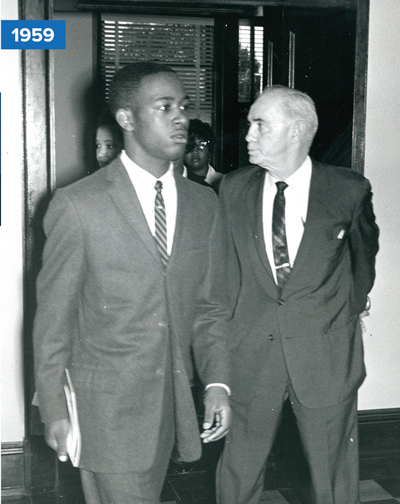 McClellan is a member of the Memphis State Eight — the first group of African American
students admitted to the University in 1959. He became the UofM’s first African American
graduate in 1962 with a Bachelor of Science in Mathematics. He also earned a Master
of Business Administration from Monmouth University.
McClellan is a member of the Memphis State Eight — the first group of African American
students admitted to the University in 1959. He became the UofM’s first African American
graduate in 1962 with a Bachelor of Science in Mathematics. He also earned a Master
of Business Administration from Monmouth University.
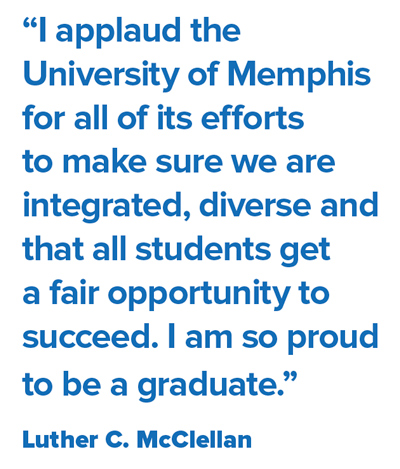 “It is quite an honor to receive this recognition,” McClellan said. “I applaud the
University of Memphis for all of its efforts to make sure we are integrated, diverse
and that all students get a fair opportunity to succeed. I am so proud to be a graduate.”
“It is quite an honor to receive this recognition,” McClellan said. “I applaud the
University of Memphis for all of its efforts to make sure we are integrated, diverse
and that all students get a fair opportunity to succeed. I am so proud to be a graduate.”
After graduation, McClellan became an Air Force officer specializing in radar countermeasures. He worked as a computer expert at the North American Aerospace Defense Command (NORAD) and as a program director at the Federal Aviation Administration (FAA). He retired in 1998 with more than 30 years of experience working for the FAA and Air Force. He also retired from the Air Force Reserves as a major.
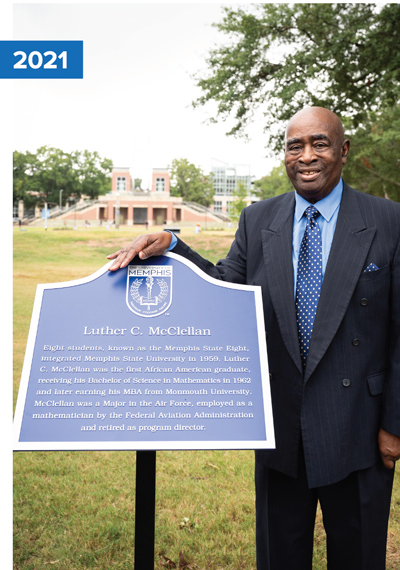 The Black Alumni Chapter of the UofM Alumni Association awards the Luther C. McClellan
Scholarship annually to as many as three deserving minority students. This award recognizes
students who have shown outstanding academic achievement, leadership qualities and
community involvement.
The Black Alumni Chapter of the UofM Alumni Association awards the Luther C. McClellan
Scholarship annually to as many as three deserving minority students. This award recognizes
students who have shown outstanding academic achievement, leadership qualities and
community involvement.
"It is an honor for the University and our community to be able to recognize how much Mr. McClellan had to endure, overcome and persevere," said Dr. Karen Weddle- West, vice president for Student Academic Success and director of Diversity Initiatives. "Today, we are in the top 20 in the country in producing African American graduates. That is the legacy of Mr. McClellan."

![]() he legacy and impact left by Larry Finch on Memphis basketball — and the entire city
— is immeasurable. The Larry Finch Plaza, dedicated on Oct. 28 in front of the Laurie-Walton
Family Basketball Center on the UofM’s Park Avenue Campus, is a tribute to all he
accomplished for his hometown and University.
he legacy and impact left by Larry Finch on Memphis basketball — and the entire city
— is immeasurable. The Larry Finch Plaza, dedicated on Oct. 28 in front of the Laurie-Walton
Family Basketball Center on the UofM’s Park Avenue Campus, is a tribute to all he
accomplished for his hometown and University.
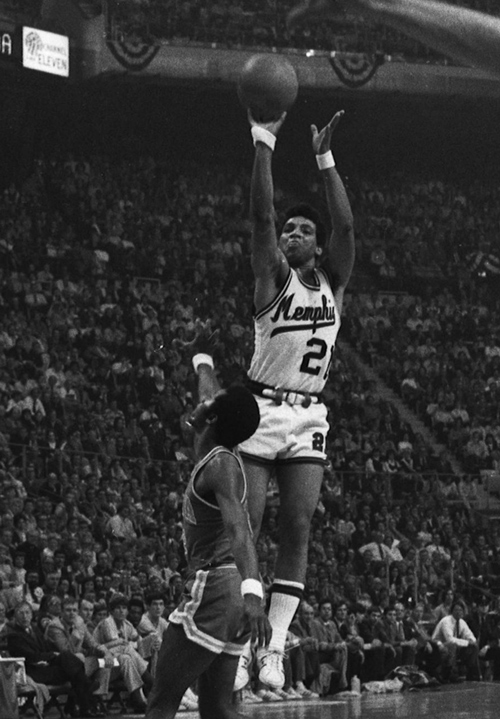 Finch grew up in Memphis' Orange Mound neighborhood, where he first made a name for
himself as a basketball star at Melrose High School. Electing to stay home and accepting
a basketball scholarship at then-Memphis State was the next step in his illustrious
career.
Finch grew up in Memphis' Orange Mound neighborhood, where he first made a name for
himself as a basketball star at Melrose High School. Electing to stay home and accepting
a basketball scholarship at then-Memphis State was the next step in his illustrious
career.
He was named an All-American as a senior in 1972-73, when he helped lead the Tigers to a national runner-up finish while averaging 24 points per game on the season. He still holds the UofM men’s basketball records for career scoring average per game (22.3), points scored in a season (721) and points scored in a game (48).
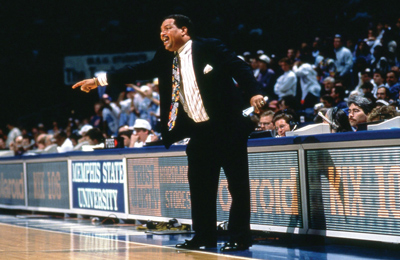 Finch returned to his alma mater in 1979 to serve as an assistant coach and helped
the Tigers reach the NCAA Tournament five consecutive seasons (1982-86), including
the school’s second Final Four appearance in 1985.
Finch returned to his alma mater in 1979 to serve as an assistant coach and helped
the Tigers reach the NCAA Tournament five consecutive seasons (1982-86), including
the school’s second Final Four appearance in 1985.
Ahead of the 1986-87 season, Finch was named the 13th head coach in program history. He guided the Tigers to 220 victories while winning 20 or more games seven times in his 11 seasons with six NCAA tournament appearances.
 “In my mind, he’s the best Tiger ever for a lot of reasons,” current UofM head coach
Penny Hardaway said during the plaza dedication. “To everyone that had something to
do with getting this beautiful plaza built, thank you so much. He is very deserving
of everything that he’s getting.”
“In my mind, he’s the best Tiger ever for a lot of reasons,” current UofM head coach
Penny Hardaway said during the plaza dedication. “To everyone that had something to
do with getting this beautiful plaza built, thank you so much. He is very deserving
of everything that he’s getting.”
The statue of Finch, who passed away in 2011 at age 60, faces toward Orange Mound, serving as a nod to his beloved community.
“Larry was a loving husband and father, a basketball player, a coach and a very loyal Memphian,” said Finch’s wife, Vickie. “To come and see a statue in his honor … I thank all of you.”
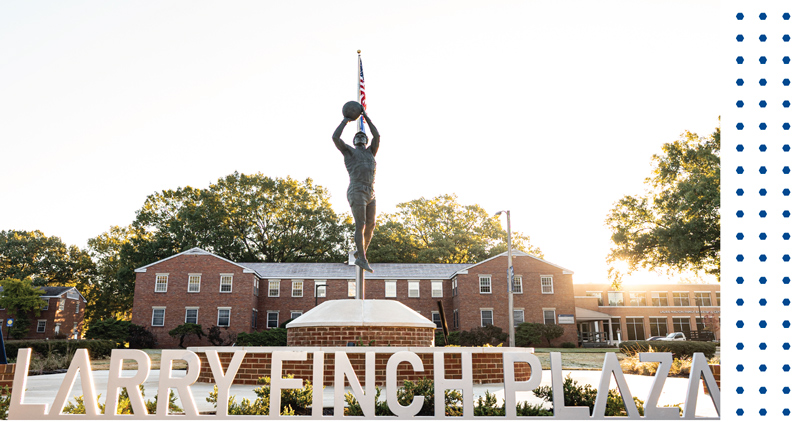

![]() ne of the most recognizable buildings on the University of Memphis campus is now named
for one of the most important figures in the city’s history. The Maxine A. Smith University
Center was dedicated last fall in honor of the Memphis civil rights legend and desegregation
champion.
ne of the most recognizable buildings on the University of Memphis campus is now named
for one of the most important figures in the city’s history. The Maxine A. Smith University
Center was dedicated last fall in honor of the Memphis civil rights legend and desegregation
champion.
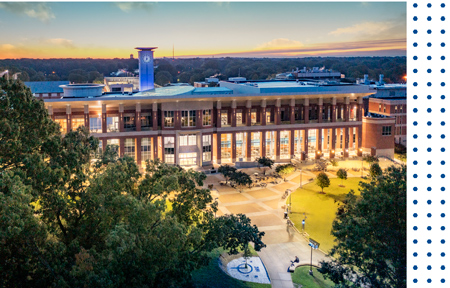 The dedication served as an especially remarkable moment considering Smith was denied
entrance into graduate school at the University in 1957 because she was African American.
That experience brought her to the attention of the Memphis NAACP chapter, which she
joined and became executive secretary of in 1962. She served in that role during major
civil rights events of the 1960s, including the Sanitation Strike and the integration
of the city school system, for which she later served on the board.
The dedication served as an especially remarkable moment considering Smith was denied
entrance into graduate school at the University in 1957 because she was African American.
That experience brought her to the attention of the Memphis NAACP chapter, which she
joined and became executive secretary of in 1962. She served in that role during major
civil rights events of the 1960s, including the Sanitation Strike and the integration
of the city school system, for which she later served on the board.
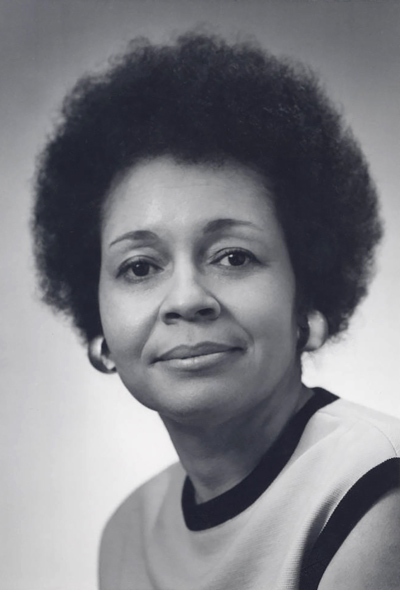 Smith fought for civil rights and school integration throughout her life, which included
organizing lawsuits, sit-ins and marches. As a result of her efforts, she received
more than 160 awards during her lifetime.
Smith fought for civil rights and school integration throughout her life, which included
organizing lawsuits, sit-ins and marches. As a result of her efforts, she received
more than 160 awards during her lifetime.
Smith graduated from Booker T. Washington High School in Memphis at age 15, earned a bachelor’s degree from Spelman College and a master’s degree from Middlebury College. She received an honorary doctorate from the UofM in 2010. She passed away in 2013 at age 83.
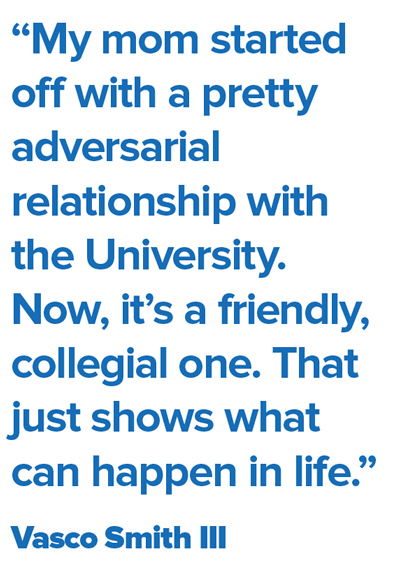 “My mom started off with a pretty adversarial relationship with the University,” Smith’s
son, Vasco Smith III, said during the dedication ceremony. “Now, it’s a friendly,
collegial one. That just shows what can happen in life.
“My mom started off with a pretty adversarial relationship with the University,” Smith’s
son, Vasco Smith III, said during the dedication ceremony. “Now, it’s a friendly,
collegial one. That just shows what can happen in life.
“She might love Spelman. She might appreciate the experience she had at Middlebury. She might have enjoyed being able to teach at LeMoyne-Owen. But I know for sure there is no honor, not even the honorary doctorate, that she would appreciate more than what you have done today.”
